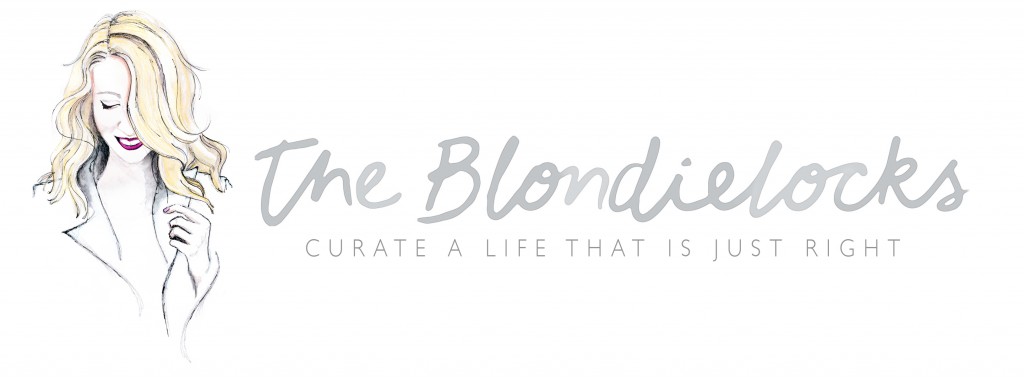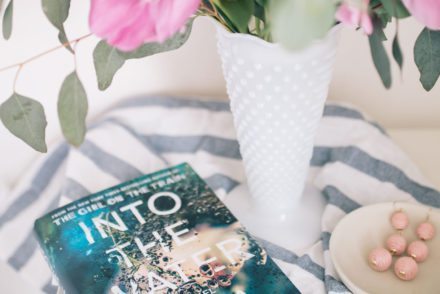 Whoa, I can’t believe that August is already here, let alone our second book club review! It literally feels as though the summer just got here and now back to school commercials are popping up and pretty soon we’ll be feeling the crisp, fall air creep into the evenings once again. As I’ve mentioned previously, I’ve never been much of a reader, and I have to say that since starting this book club I’ve been impressed with myself on how much I’ve enjoyed diving into each of our book picks. Surprisingly, I’ve already finished August’s book (Into The Water) and can’t wait to get started on Marlena in the next couple of days. I’ve found this book club has really helped hold me accountable when it comes to reading and I’ve been thinking of keeping it going, or at the very least I’m going to try to keep on reading (but like I said, book club = accountability, haha!). Anyway! I’m very excited to be reviewing our July pick, Dear Ijeawele or a Feminist Manifesto in Fifteen Suggestions today. This book was Lorielle’s pick and I’m so glad that she chose it because in all honestly, while of course, I am a feminist, it’s a book that, if she hadn’t of picked it, I probably would have never read. To give you a brief description, Dear Ijeawele or a Feminist Manifesto in Fifteen Suggestions is a guidebook of sorts to help educate everyone and anyone on what feminism means. It’s a book about empowering our daughters to become strong, independent women and to reject what society has taught us what being a woman “should” mean. So without further adieu, our review of Dear Ijeawele or a Feminist Manifesto in Fifteen Suggestions by Chimamanda Ngozi Adichie.
Whoa, I can’t believe that August is already here, let alone our second book club review! It literally feels as though the summer just got here and now back to school commercials are popping up and pretty soon we’ll be feeling the crisp, fall air creep into the evenings once again. As I’ve mentioned previously, I’ve never been much of a reader, and I have to say that since starting this book club I’ve been impressed with myself on how much I’ve enjoyed diving into each of our book picks. Surprisingly, I’ve already finished August’s book (Into The Water) and can’t wait to get started on Marlena in the next couple of days. I’ve found this book club has really helped hold me accountable when it comes to reading and I’ve been thinking of keeping it going, or at the very least I’m going to try to keep on reading (but like I said, book club = accountability, haha!). Anyway! I’m very excited to be reviewing our July pick, Dear Ijeawele or a Feminist Manifesto in Fifteen Suggestions today. This book was Lorielle’s pick and I’m so glad that she chose it because in all honestly, while of course, I am a feminist, it’s a book that, if she hadn’t of picked it, I probably would have never read. To give you a brief description, Dear Ijeawele or a Feminist Manifesto in Fifteen Suggestions is a guidebook of sorts to help educate everyone and anyone on what feminism means. It’s a book about empowering our daughters to become strong, independent women and to reject what society has taught us what being a woman “should” mean. So without further adieu, our review of Dear Ijeawele or a Feminist Manifesto in Fifteen Suggestions by Chimamanda Ngozi Adichie.
PS: I’m giving away a copy of Fierce Kingdom and Marlena to two lucky readers! To enter, please leave a comment below letting me know either the books you’ve been reading this summer, a book you’re looking forward to reading OR a book that you’ve read and has left an impact on your life in some way.
Book: Dear Ijeawele or a Feminist Manifesto in Fifteen Suggestions by Chimamanda Ngozi Adichie.
Whos Pick: Lorielle
Q&A:
What did you expect going into the book, did it meet your expectations?
Kaylee: Dear Ijawele was not only my first time reading Adichie but my first time ever reading a book about feminism, so to be perfectly honest, I had no idea what to expect. I went into the book excited to read it because my sisters had already read Adichie’s first book, “We Should All Be Feminists” (which I’m planning to read) and because they enjoyed it, and I highly respect their opinions, I was anticipating that I’d like reading Dear Ijawele.
Lorielle: I had high expectations going into this book as I am familiar with, and a fan of, Adichie’s other work. I think her writing is eloquent and accessible so I was expecting Dear Ijeawele to be written this way as well. For the most part, Dear Ijeawele met my expectations. It is a book that anyone could pick up and read and immediately understand. Many feminist books have a tendency to be very theoretical and academic in nature but Adichie makes the most basic feminist principles easy to understand and enjoyable to read!
Raelene: Going into “Dear Ijawele…” I had already read Adichie’s “We Should All Be Feminists”. That book is very tiny but it was her writing that made me read it in one sitting. Her writing reads easy and eloquently and her opinions and ideas are extremely smart and researched. I like that she avoids pretentious language which in turn allows her ideas to become more accessible. I was expecting that Dear Ijawele would be the same and I was completely right. I read this book in two sittings and her writing was just as good as the first book I read of hers.
Do you have a favourite quote or passage from the book? What is it?
Kaylee: There are so many quotes and passages from Dear Ijeawele that I would love to share, but here are 2 that have stuck with me. The first because it is such an obvious statement that I don’t feel should be up for debate, and it shocks me that some people don’t feel as though cooking and chores should be a skill that both sexes have. It also made me laugh (you’ll see why). The second quote (and the entire eighth suggestion) I chose because simply, I can so relate to feeling this way. More often than not, I am worried about being liked. I had the realization that the fear of someone thinking I’m rude or being nice the countless times where I definitely should not have been, is ridiculous. I can still stand my ground and speak my mind and remain whilst remaining a kind person at heart.
“There have been recent Nigerian social media debates about women and cooking, about how wives have to cook for husbands. It is funny, in the way that sad things are funny, that we are still talking about cooking as some kind of marriageability test for women. The knowledge of cooking does not come pre-installed in the vagina. Cooking is learned. Cooking —domestic work in general—is a life skill that both men and women should ideally have. It is also a skill that can elude both men and women.
“We teach girls to be likable, to be nice, to be false. And we do not teach boys the same. This is dangerous”. “We have the world full of women who are unable to exhale fully because they have for so long been conditioned to fold themselves into shapes to make themselves likable.”
Lorielle: My favourite quote from Dear Ijeawele is “…social norms are created by human beings, and there is no social norm that cannot be changed” (51). This is the only quote that I both highlighted and starred and I can’t seem to stop thinking about it. I think it’s very easy and commonplace to accept social norms as static truths. It takes a lot more effort to question social norms and your own complacency in maintaining social norms that may be harmful to people who do not fit within the confines of those norms. I read this quote as a bit of a challenge. I think Adichie is trying to highlight the idea that if there is a social norm that doesn’t sit right with you or that you think is outdated and harmful, then you should do something to change it.
Raelene: My favourite passage from this book is “That a woman claims not to be feminist does not diminish the necessity of feminism. If anything, it makes us see the extent of the problem, the successful reach of patriarchy. It shows us too, that not all women are feminists and not all men are misogynists.” I like this passage because of how obvious it is. There is nothing about this passage that is hard to comprehend, yet so many people still stigmatize feminism. Adichie puts this thought into easy to understand words and I think it’s an important passage for people to read.
Out of the fifteen suggestions, which is your favourite?
Kaylee: This was a hard question for me to answer because there were notes that I took from each suggestion, but if I had to choose I’d say that suggestion number two (“Do it together) was my favourite. I want to be a mother some day and I know that Jamie wants to be a father, and after reading this suggestion I realized that even though Jamie isn’t a father yet (unless we’re talking dog father), I already know the type of dad he’s going to be. He is the type of man who will gladly share in the responsibilities of parenting and do everything that I do (with the exception of breast feeding) and he’ll do it without needing or asking for praise. I think that it is SO important for both men and women to realize that choosing to have a child is between two people and so it should be obvious that it’s a job that should be shared. I also feel as though it can be easy for a woman to feel as though they can “do it better” (I can see myself thinking that way) but after reading this suggestion I made a mental note that if I’m ever blessed to have a child(ren) and if Jamie is doing something that I feel I can do “better”, I’m going to hold my tongue because different doesn’t necessarily mean better.
Lorielle: My favourite suggestion is, “Teach her about privilege and inequality and the importance of giving dignity to everyone”. This seems like such a basic lesson to learn but, unfortunately, many people are still unable to recognize their own privilege and are unable to treat people who are different from them with kindness and basic human decency. This may be because they were never taught to recognize their own privilege or to understand and value difference. As such, learning this suggestion from a young age is extremely beneficial and makes this suggestion the most important one in my opinion. Although, “Teach her to love books” is a close second!
Raelene: Out of the fifteen suggestions number seven (“Never speak of marriage as an achievement”) was my favourite. Adichie talks about how we condition girls to aspire to marriage, noting that we do not teach boys the same thing. In relation to heterosexual couples, there in an automatic imbalance in relationships because the institution of marriage matters more to one person (the woman) than the other (the man). I’ve had this conversation with my friend many times. For example, she once told me that at family gatherings she is always asked if she has a boyfriend, not how her degree is going. However, her male family members are only asked about girlfriends as an afterthought. I too have similar experiences and I always cringe when people ask me if I have a boyfriend. They always seem disappointed when I say no, as if that is the only exciting or interesting thing that could be happening in my life. I really appreciate that this is one of the suggestions.
Do you agree or disagree with what the author is saying about feminism? Is there anything you would have added?
Kaylee: While I agree with mostly everything that Chimamanda Ngozi Adichie says about feminism and think that she is an incredibly smart and well-spoken woman, there is one passage that I felt could have been worded better. In the seventh suggestion, Adichie discusses marriage and women feeling societal pressure to change their last names. Though I do agree that there can be pressure to change your last name to your husband’s once married, and of course that every woman should have the choice to keep her last name, I do feel as though Adichie was very one-sided when it came to women keeping their last names. While she does say “There are obviously women who want to take their husband’s names” I felt the writing had almost a judgemental undertone…like she feels as though women who take their husband’s last names are conforming, which I don’t feel is practicing feminism. I could be reading too much into it, but I feel like she should have said something like “of course there are women who want to take their husband’s names and that is wonderful “and left out the word conforming altogether.
Lorielle: Generally speaking, I think I agree with all of the suggestions that Adichie writes about in her book. When you read them, they seem to make sense on an intuitive level. For example, it makes perfect sense to me to teach a young girl that it is important to be able to do things for herself and to be able to fend for herself. I have trouble believing that anyone, feminist or not, would disagree with this notion. Adichie’s suggestions then are able to make feminism more accessible, especially to people who may have a preconceived or negative idea about what feminism means. I think this was a really smart way of introducing feminism on Adichie’s part. Though Adichie certainly doesn’t stray away from using the “f(eminist) word”, it is clear that she is trying to reach audiences that may not be familiar with feminism which I think should be the ultimate goal of feminism. In order for change to occur and for true gender equality to become a reality, feminism must become mainstream and I think Adichie’s book is trying to achieve that.
Also, though this book is short, Adichie does an excellent job of and keeping her feminist teachings intersectional so, all in all, I don’t think I would add anything to this book!
Raelene: I agree completely with what Adichie wrote and I don’t think I would have added anything else. I like that she stressed how she is not a mother and simply can’t understand certain things because of that. I think if she did not acknowledge this, the book wouldn’t have been as impactful.
Do you recommend this book and if so, who do you recommend it to?
Kaylee: As I mentioned in my opening paragraph, if Lorielle hadn’t of picked this book I probably never would have bothered to pick it up. However, now that I’ve read it, I’m kicking myself for thinking such a thing. Dear Ijeawele is such an easy and impactful read. At only 63 small pages, I feel as though everyone, female and male should read this book. Even if you already consider yourself feminist, I think that it’s a great guidebook of sorts to have on hand as a refresher or to share with others. I also feel as though all men should read Dear Ijeawele, especially dads-to-be or new dads. Not that all men aren’t feminists, but I do feel like some men (and women for that matter) have a skewed idea of what feminism is and this book may give them a new or different perspective on what feminism means. On another note, Jamie noted that Donald Trump would benefit from reading Dear Ijeawele, but I’d imagine that will never happen.
Lorielle: I 100% recommend this book to anyone! I know that Adichie wrote the book to answer her friend’s question “How to a raise my daughter to be a feminist” but, in my opinion, everything in it is applicable to raising sons as well. Generally speaking, I think it is a good book for parents to read but also a good book for parents to read with their kids. I really don’t think a person is ever too young, or too old, to learn about gender equality and that is fundamentally what feminism, and Dear Ijeawele, teach. Just read this powerful little book!
Raelene: I would definitely recommend this book. I think everyone should read it. It does a good job of explaining feminism and again her writing is accessible so I think it would benefit every kind of person and maybe even open up some minds.
After reading this book, has your view point on feminism changed? What do you define feminism as?
Kaylee: After reading Dear Ijeawele or a Feminist Manifesto in Fifteen Suggestions, I would say that my view point of feminism hasn’t changed as I have always simply defined feminism as equality amongst sexes. However, the book did give a ton of examples of things that I had never really thought about as being a feminist issue such as “likeability” which I talked about in question 2. The book gave me a more in depth meaning of feminism and after reading this I whole heartedly call myself a feminist.
Lorielle: I can’t say that my opinion of feminism has really changed after reading Dear Ijeawele but I think that is because I’ve been fortunate enough to take courses and read other books that teach Adichie’s message in a more in-depth manner. Having said that, I think Dear Ijeawele reminded me of what feminism means at its core. To me, feminism is simply the belief that not only should men and women be treated equally, but that people of all genders, all sexes, all races, all ethnicities, and all sexualities should be treated equally and be able to live in a world free of barriers and hatred.
Raelene: After reading this book I would say my view point on feminism has stayed the same. I was a feminist before I read it and I still am. However, it did make me think about what it means to raise a child as a feminist. I have no idea if I will ever have children but if I do I know I will raise them to be feminists. This book offers something to think about and 15 great suggestions on how to do so.
The Blondielocks Book Club introduction here, First book club review here and be sure to follow Lorielle and Raelene on Instagram




